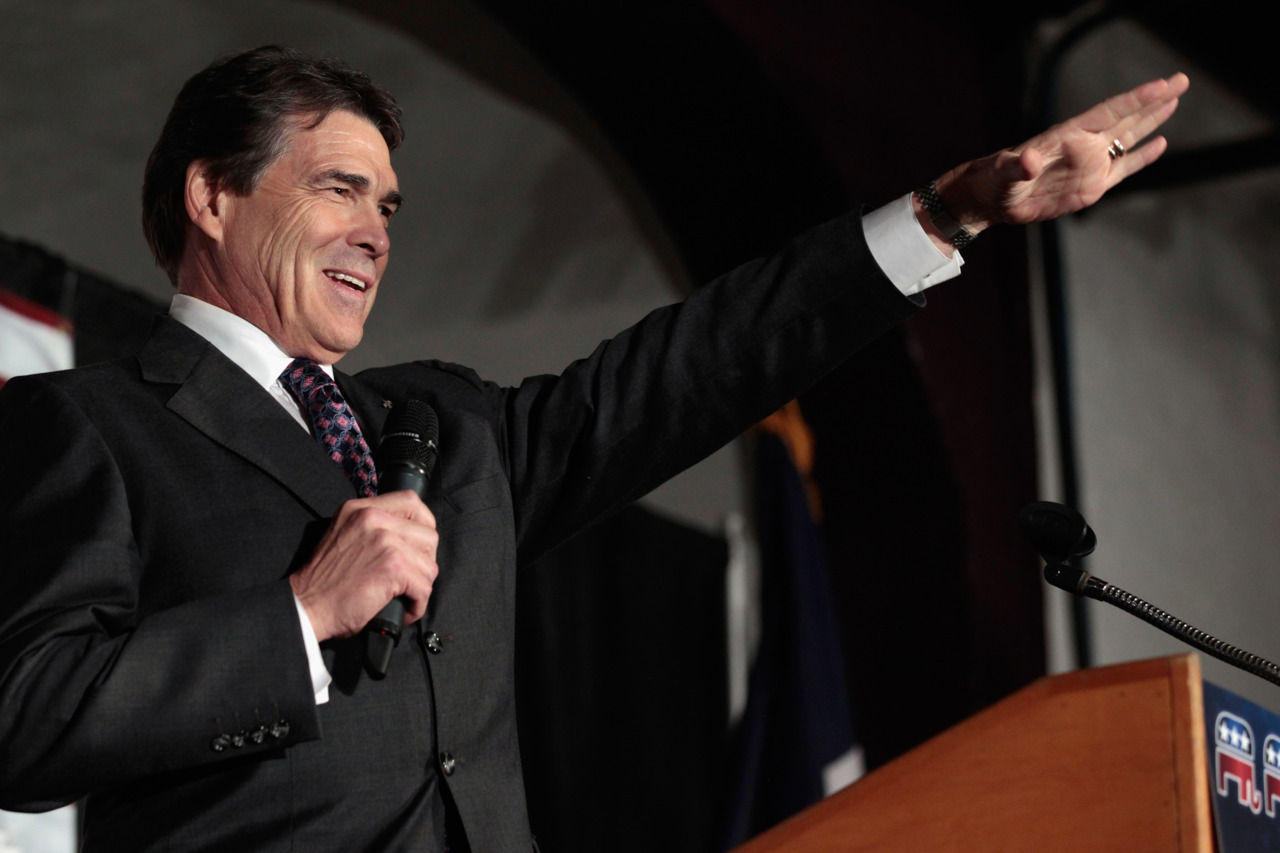August 17, 2011
As Gov. Rick Perry of Texas campaigns for the Republican presidential nomination, he's promoting his record in his home state, which has created more than 265,000 jobs in the past two years.
Perry says he would do for the nation what he's done for the Lone Star State.
The economy of Texas is growing at roughly twice the national average, but the question is: How much did Rick Perry and his low-tax, low-regulation philosophy influence that growth?
If you draw a rectangle on a piece of paper and put your pen in the bottom left-hand corner and then make a straight line across the box to the top right-hand corner, you've just drawn a graph of employment in Texas for the past 20 years. Really, that's what it looks like. From Gov. Ann Richards to Gov. George W. Bush to Gov. Rick Perry, the state has exploded in population and jobs.
"So it's not just the last 10 years; this has been going on now for 21 years — at least," says Richard Fisher, the president of the Federal Reserve Bank of Dallas.
Fisher says population expansion is driving growth. Every day, about 1,000 people are either born in or move to Texas. That means new housing, roads, retail, schools, police, firemen — the list goes on. And while Perry touts the success of job creation in the private sector, job growth in government employment has been just as strong.
"We're growing at 80,000 schoolchildren a year, so those children are going to have to be accommodated," says Bill Hammond, the president of the Texas Association of Business.
The oil and gas industry provided nearly 40,000 new jobs since 2009, and most pay good wages. A truck driver servicing an oil or natural gas rig earns on average $1,600 a week. Texas is also creating a lot of low-paying jobs.
A new four-bedroom, three-bathroom house in a Dallas suburb can be bought for $189,000, and one reason is because immigrants, both legal and illegal, are willing to shingle those roofs in 100-degree heat for relatively low pay. Hammond says easy access to inexpensive labor has long been a critical part of the economy's success.
"If you look at agriculture, construction and hospitality, there's simply not enough people born in Texas, or across the country for that matter, to fill all those positions," Hammond says.
So with all of these advantages, does Perry get any of the economic credit? Hammond says you bet.
"I think the governor's record is outstanding," he says. "In his 10 years in office, we've seen enormous growth. Through his leadership, we were able to fill the budget gap without any new or additional taxes."
Hammond and Perry say Texas is attractive to businesses because there's no corporate income tax, no state income tax, and environmental and other state regulations on Texas businesses are kept to a minimum. Critics reply that there's a big downside to these policies, as Texas ranks 44th in expenditures per public school pupil and 50th in the number of adults and children who have health insurance.
Dick Lavine, a senior fiscal analyst with the Center for Public Policy Priorities, says the state is tied with Mississippi for the highest percentage of the workforce in minimum wage jobs. His group tracks legislation's impact on middle- and working-class Texans.
"To some extent, people in Texas just do without a lot of the public services that inhabitants of other states enjoy," Lavine says.
An important talking point in Perry's campaign as it relates to his leadership on jobs is the Texas Enterprise Fund. This taxpayer fund was created at Perry's behest to give money directly to corporations as an inducement to either relocate to Texas or, if they're already in the state, to expand. Perry says that by giving away nearly a half-billion dollars, the fund will ultimately create nearly 60,000 jobs.
The Enterprise Fund has come under attack, however. Texas Tea Partiers say funneling hundreds of millions of taxpayer dollars to corporations and businesses is akin to President Obama's stimulus spending. And Texas newspapers like the Dallas Morning News and the Texas Observer have chronicled in detail how some of the companies receiving Enterprise Fund money have donated generously to Perry's campaign coffers. Perry's staff vigorously deny that there has been any quid pro quo.
What is undeniable is that relative to the rest of the country, Texas is adding the most jobs by far. Unfortunately, it has not been enough. Texas' unemployment rate is at 8.2 percent, higher than the unemployment rate in the highly taxed, highly regulated state of New York. It is also higher than the 7.6 percent unemployment rate of Massachusetts, with its near universal health care, the state once governed by GOP rival Mitt Romney.




